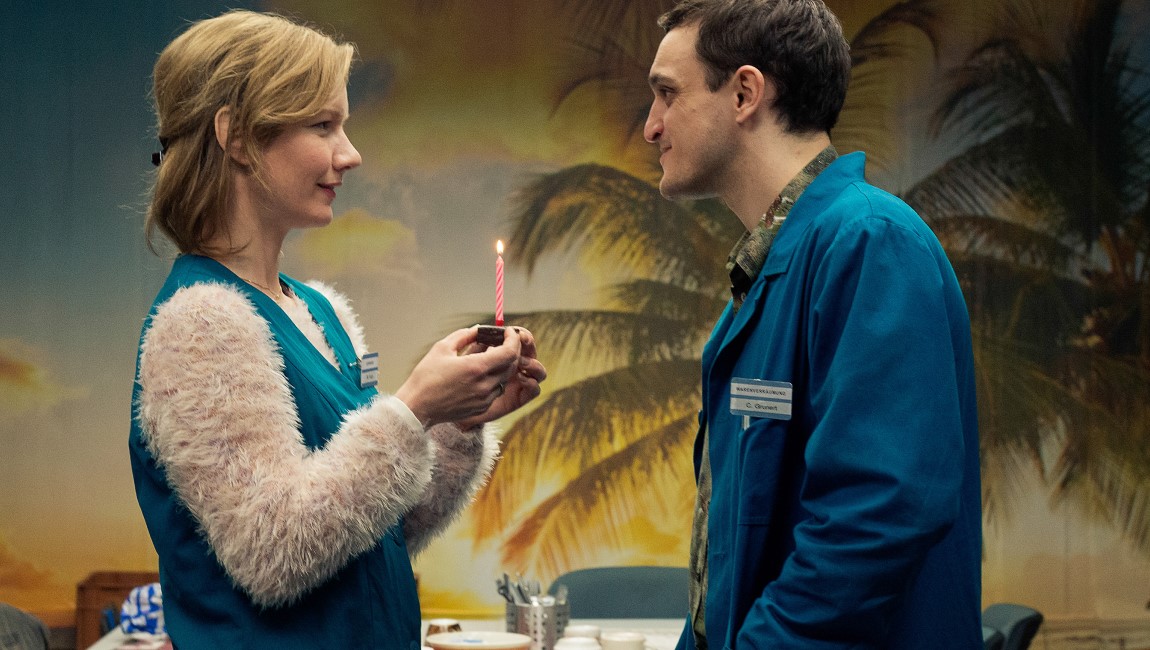True Mothers bears Kawase’s familiar textures and ambiance but is hampered by a few too many banal plot beats.
Adapted from a 2015 bestseller by Mizuki Tsujimura, Naomi Kawase’s True Mothers is a melodrama rendered with an admirable textural specificity and a feel for the sundry pressures of urban life. In telling two sides of an adoption drama, it employs a structure of shifting timelines and perspectives — presumably retained from the source novel — often doubling back to replay select moments with added context, in a transparent attempt to accentuate their emotional force. But far more than its unduly convoluted plotting, what impresses most often in True Mothers are Kawase’s stylistic modulations of the material, her capacity to diffuse cresting emotional beats into, say, the diaphanous flutter of a curtain or an ice-blue shot of Tokyo’s skyline; her ability, in other words, to absorb melodrama back into the rhythms of the everyday.
The prospective parents in True Mothers are a well-to-do, thirty-ish couple, Satoko (Hiromi Nagasaku) and Kiyokazu (Arata Iura) — though when first introduced, they’re already parents, and are in fact walking their kindergarten-age son Asato to school for the day. When he is soon accused of pushing another kid off a jungle gym, however, we skip back to a time before his birth, when the pair, still childless, is trying but failing to change that circumstance. After giving up on various medical treatments, they eventually decide to go with an adoption agency called Baby Baton, whose stated emphasis is not on prospective parents, but on the unwanted children. Accordingly, it imposes strict rules on applicants — one of the parents must give up their job and stay at home; the child must be told they are adopted before they are in elementary school — in exchange for irreversible parental rights.
Perhaps surprisingly, not much is made of the adoption process, dramatically speaking — Satoko and Kiyokazu accept apparently without argument or reservation, and though we know from the opening scenes that the former eventually gives up her job, the decision precipitates no onscreen conflict whatsoever. Accordingly, much of the interest shifts to place and procedure, particularly during an info session run by the adoption NGO’s head, a kindly, middle-aged woman named Shizue Asami (Miyoko Asada). (Here, as later in the movie, Kawase’s background in documentary, present in her filmography since 1997’s Suzaku, is in evidence.) When the couple are, months later, eventually called to meet their baby in a Hiroshima hospital — Baby Baton houses expectant mothers on the island — they are given the option to see the mother, an opportunity they accept. Hesitatingly, they approach a young girl, Hikari (Aju Makita). She gives them a letter for her son, and after a tearful embrace, they part.
All this having been established, True Mothers finally returns to the present, where it turns out that Asato’s classmate had been fibbing about the jungle gym accident all along. But no sooner has this conflict been resolved than another one comes up, this time in the form of blackmail from a woman claiming to be Asato’s birth mother. With trepidation, Satoko and Kiyokazu meet the woman, who presents some demands for money, but whom they assume is an impostor, and decidedly not the Hikari they had met years earlier. We then flash back to learn of how a 14-year-old Hikari would, from an unremarkable high-school existence, eventually arrive at that moment, unrecognized by even the couple who had adopted her son years earlier.
In truth, the particulars of Hikari’s backstory, as with the rest of the film’s plot, are of little significance. Suffice it to say that as far as melodramas go, True Mothers is a fairly gentle one, populated by fundamentally decent characters doing their best in trying situations, and its conclusion will do nothing to change that impression. To the film’s credit, neither Kawase nor her co-screenwriter Izumi Takahashi are at all naïve about the reasons that those such as Hikari are forced to give their children up, and during a video-diary passage at Baby Baton’s safehouse for expectant mothers, matters such as sex work and family abuse are treated with disarming candor. Still, while the film’s rather predictably plotted story does offer Kawase ample opportunity to clarify her stylistic hallmarks — expressive textures and ambiance, often coupled with a concerted focus on nature — True Mothers is ultimately a rather frustrating experience. With Kawase’s keen attention to the diurnal drifts of city life — as played out by both Satoko and Hikari — True Mothers manages, for a time, to convey a vivid sense of the everyday, but faced with a few banal plot turns too many, it succumbs, by the end, to mere obviousness.







